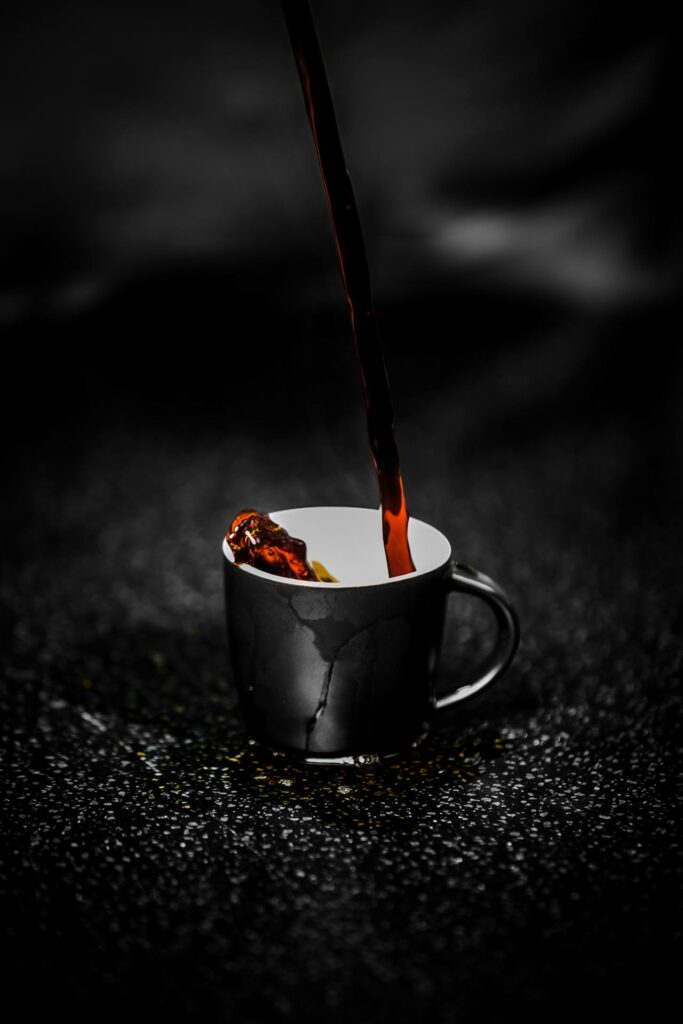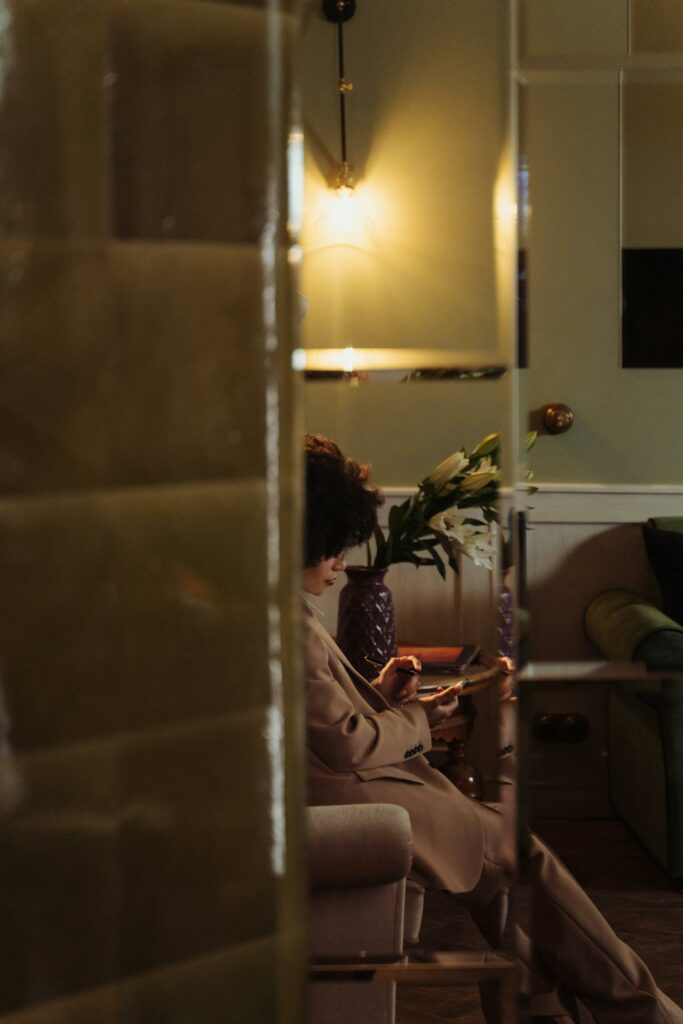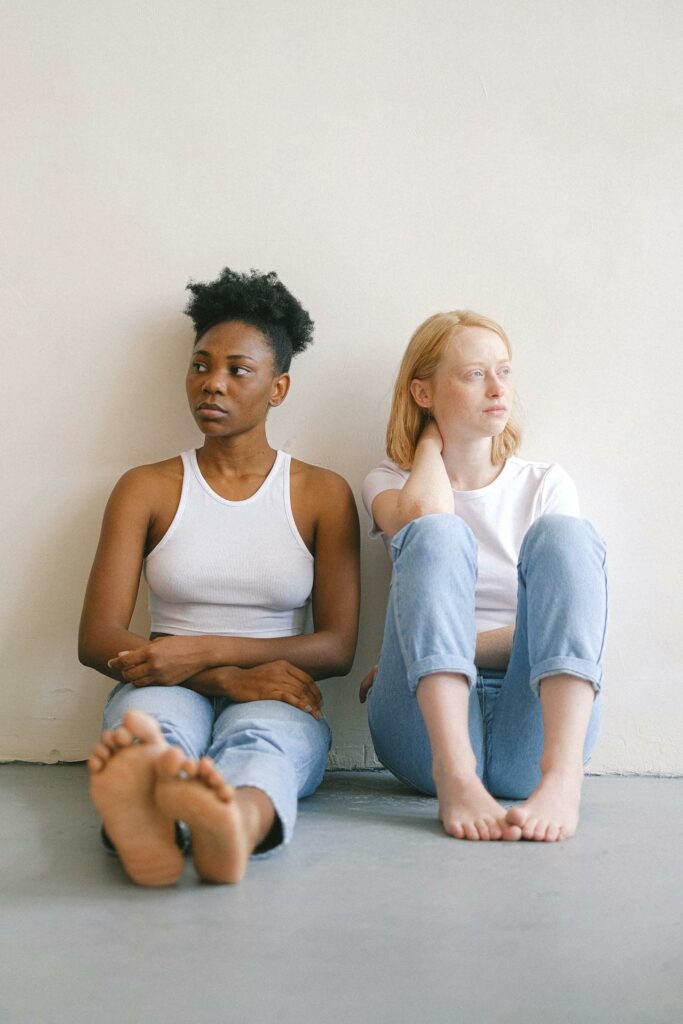Habits that Increase Our Anxiety
In a previous post, I discussed the ways our thoughts and bodies impact our experience of anxiety. In this post, I want to cover the habits and behaviors that many of us engage in that increase anxiety.
Caffeine and other Substances

Number one in my book is caffeine misuse or even use at all, if you are particularly sensitive to it. Paradoxically, some people with anxiety will use caffeine because they need to feel more alert in order to be ready to deal with that disaster they are sure is coming! Caffeine is the most popular drug in the world for good reason. It peps us up, has painkilling effects, and boosts the effectiveness of pain medications like aspirin and ibuprofen. Coffee and tea are central to many of our social rituals and there are so many delicious ways to drink them. Coffee has become somewhat of an identity for some people. I’m a pour-over kinda gal myself.
Energy drinks have become insanely popular, and some are utterly horrible in terms of unwise amounts of caffeine and sugar. You may recall the headlines about a few teens dying due to the overuse of energy drinks. A young client pointed out to me that my bias against energy drinks is basically because I am old-fashioned (guilty!) and it’s hypocritical to approve of coffee and poo-poo energy drinks. I had to agree since there are coffee drinks that also have excessive amounts of caffeine. But to me, it’s rather like the marijuana of today, which is not like the weed of yesteryear. It’s more potent and can be consumed in a myriad of ways. 400 mg of caffeine is considered the “safe” daily dose for a healthy adult, an 8 oz cup of regular coffee has around 100 mg. Some energy drinks have 200 mg, or more, in one 12 or 16-oz can.
However one may choose to consume caffeine, being mindful of the dose and how your body responds is important. This drug increases heart rate and blood pressure, disrupts sleep, and creates “shakiness” that mimics trembling caused by fear. Caffeinated drinks can increase dehydration, which creates discomfort and a sense of unease. For anyone with anxiety or sleep difficulties, assessing your caffeine intake is essential. DO NOT cease caffeine cold turkey unless told to do so by a medical professional. Withdrawal headaches are awful and unnecessary – titrating down over several days is better. Ceasing caffeine several hours before bedtime is generally recommended to prevent interference with sleep. Research indicates, and it has been my experience as well, that the ability to tolerate caffeine changes with age, so older adults may not be able to handle it as well as when they were younger.
While we are on the topic of socially acceptable and common drugs, both alcohol and marijuana can exacerbate anxiety. There is science behind the “hanxiety” of post-drinking anxiety. (For a literally sobering take on alcohol use, check out the Huberman Lab Podcast episode on alcohol, I guarantee you will never think about alcohol the same way again, so be warned). And for some folks, marijuana increases anxious feelings. This is contrary to our traditional understanding of marijuana as a relaxing drug, but everyone is different and for some people, marijuana is not helpful for the nervous system. I have worked with clients who were long-term users and noted that the effect of smoking had changed for them. For anyone who is struggling with anxiety, it’s helpful to consider experimenting with a period of reduced use or abstinence from any substance to see how you feel.
The “Doomscrolling” Trap

Second, on my list of unintentional anxiety-increasing behaviors is the usage of “addictive” media. This includes any kind of news, especially cable news and social media. There has been a lot written about this, particularly in the last few years. My take on it is that our brains are not wired to manage the firehose blast of information that comes at us in the 24-hour global news environment. Content producers of all kinds know that stimulating people emotionally is good for business and that anger and fear keep people watching. Many folks are finding it helpful to limit their consumption of all media, with social media fasts or news diets. Put your phone down and breathe. Take a break from the doomscrolling, turn off notifications, and try to be present in your moment. There is an admittedly difficult balance between remaining engaged and reasonably well-informed about what’s happening in the world and being overwhelmed to the point of helplessness and panic. There’s plenty of good content out there for people who want some ideas about how to conduct their own media diet.
Anxiety from Others

The third behavior that may contribute to anxiety is the company we choose to keep. We are herd animals, and acutely impacted by the moods and behaviors of the other humans we are in the presence of. Particularly for sensitive or empathic folks, stress and anxiety can be contagious. If possible, manage your contact with those who are prone to be chronically negative and distressed, prone to “drama” and want you to engage in all that with them. That coworker who stresses you out by gossiping and bitching all the time, that friend who always has a new crisis going on, the family member who forwards you alarming news stories every few hours – try to find ways of reducing those interactions. Boundaries can be huge for your peace of mind in these situations.
Anxiety is difficult enough to deal with without adding to it through our habits and behaviors. Considering ways we’re accidentally adding to our anxiety can help us choose actions that will reduce our anxiety and improve our quality of life.
All posts are written by Kathryn, no AI.
